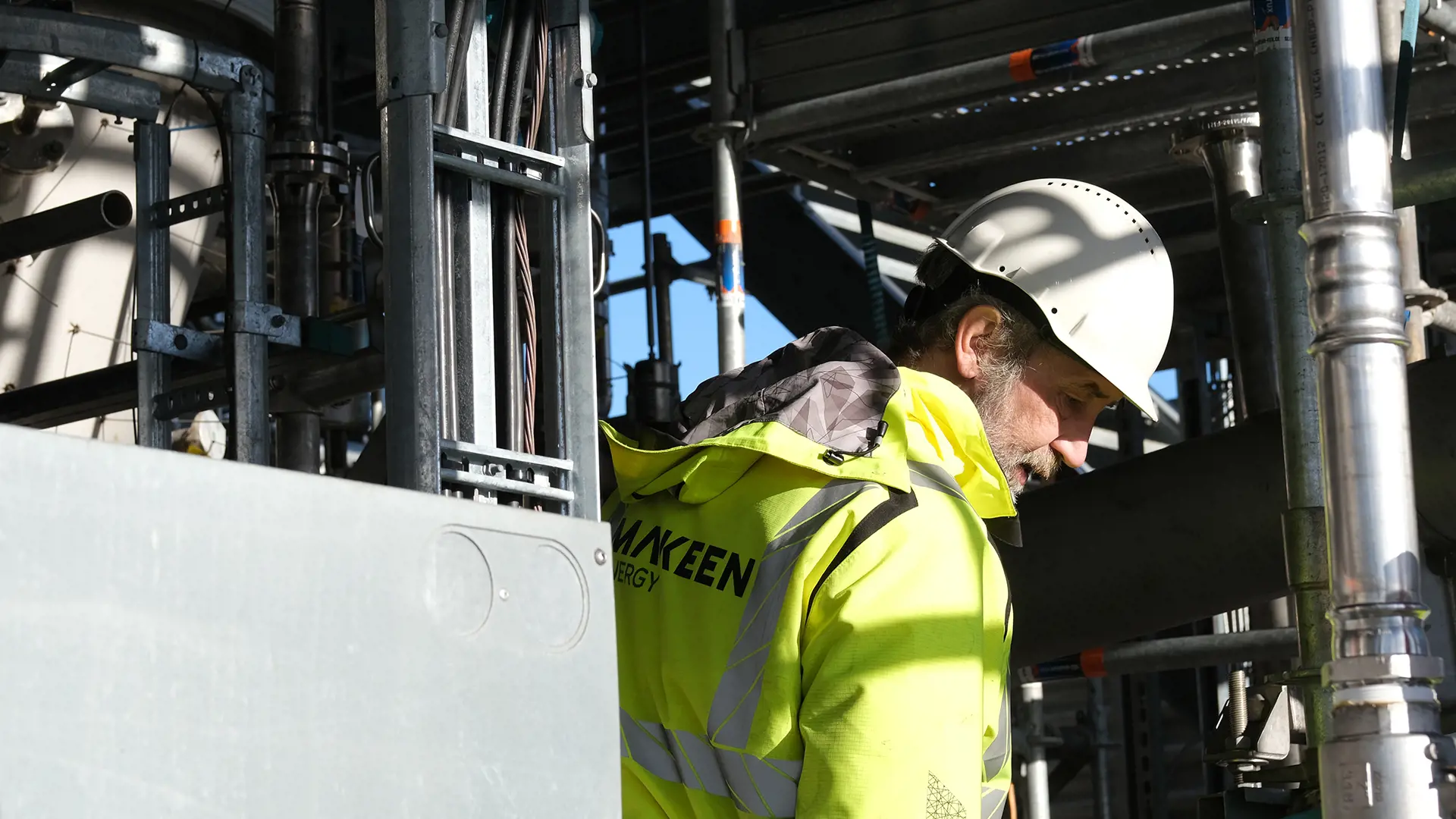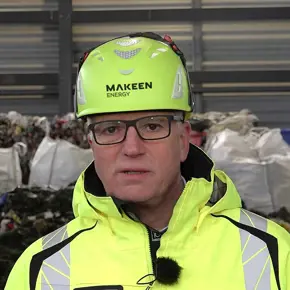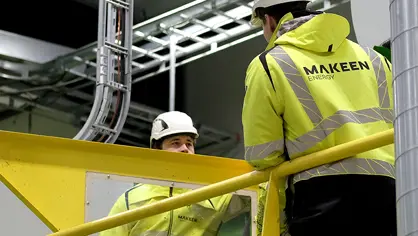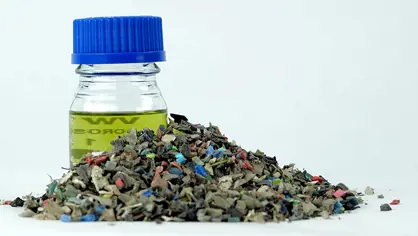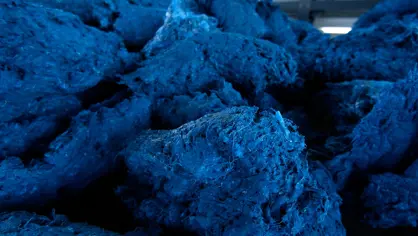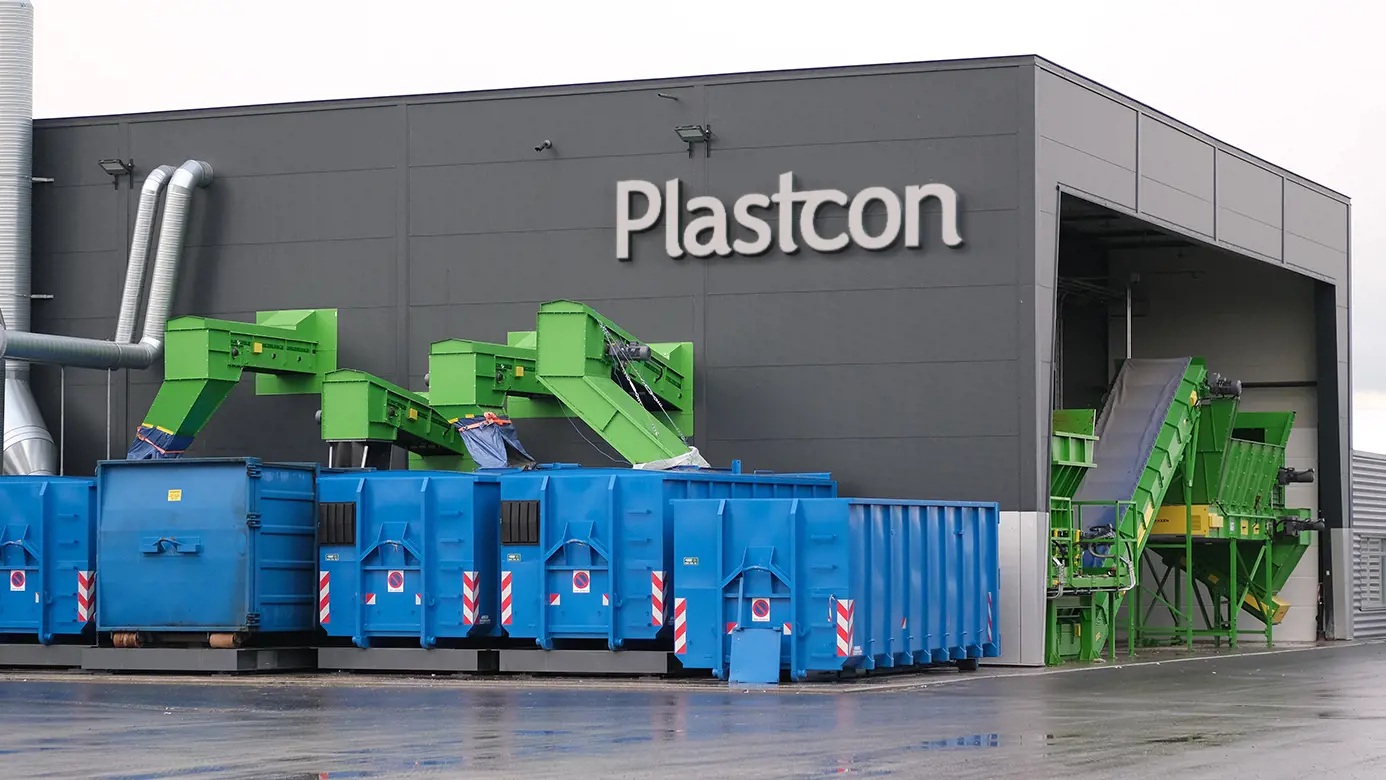Plastcon – Plastic waste conversion
Building the Plastcon plant and organisation from the bottom has meant that we are setting the standard in the market for chemical recycling.
1. What is pyrolysis?
The Plastcon plant is based on pyrolysis technology. Pyrolysis is a process in which a material is exposed to high temperatures in an oxygen-free environment. In the case of the Plastcon system, the material can be plastic waste from both industry and households.
In Plastcon, the pyrolysis process makes it possible to recycle plastic items – and, importantly, to do it with an absolute minimum of pre-treatment. The result is separation of the different molecules in the plastic, and in that way the plastic waste is turned into pyrolysis oil and pyrolysis gas.
2. What types of plastic can be chemically recycled?
Generally speaking, almost all types of plastic can be chemically recycled. Chemical recycling is well suited to contaminated, mixed, problematic and/or compound and multilayer plastic waste streams.
The Plastcon system is less demanding in terms of how clean the plastic waste needs to be, and it can take over in the cases where plastic waste is unsuited for mechanical recycling.
If we look at the seven known types of plastic in household waste, the system can chemically recycle all types with the right mix. Plastic types like PVC and PET do not contain much oil and will, in large amounts, produce lower oil yields and potential process deviations. But our robust Plastcon system is designed to never break or suffer downtime, even if these types of plastic should occur - the system simply knows how to process them.
3. What is the primary energy source for the Plastcon system?
The primary energy source for Plastcon is electricity. This ensures maximum oil yield and recycling rate, as we can control the pyrolysis process with accuracy. Unlike other pyrolysis operators, our system does not need to use the energy contained in the synthetic gas to sustain operation.
Using electricity makes it possible to secure high uptime and plan maintenance in ways where other equipment can take over. Furthermore, the system can heat up the plastic mass very efficiently and accurately – thereby resulting in an energy positive process.
Running the plant on electricity also enables a very low CO2 footprint, as all the power needed can originate from renewable sources such as wind turbines.
4. Is the Plastcon system a continuous pyrolysis process?
Yes, our Plastcon system is built on a continuous pyrolysis operation, during which Carbon Black is periodically extracted from the system. This is possible due to the efficient and innovative design of the pyrolysis reactor itself, as well as other plant-specific design features that our experienced engineers have designed from scratch.
5. What is the size and capacity of a Plastcon system?
The Plastcon facility is built on a modular setup. This makes it possible to match the size and capacity of a facility to the needs and amounts of plastic waste at a specific location. And if things change at a later stage, it is possible to adjust the scale.
The capacity of a Plastcon module is 25 tonnes/day – meaning that one module handles 25 tonnes of plastic waste every production day. It is possible to combine two or three modules to reach a capacity of 50 or 75 tonnes/day respectively.
Once a Plastcon facility is up and running, it continues steadily with ongoing maintenance and a 90% production uptime. In other words, it runs 90% of the time, day and night, every day, and in a calendar year this amounts to 328 full production days. Taking this into account, a Plastcon facility with two modules is able to handle 16,750 tonnes of plastic waste every year.

Have you still not found the answer to your question? Then please do not hesitate to contact us.
Contact us here